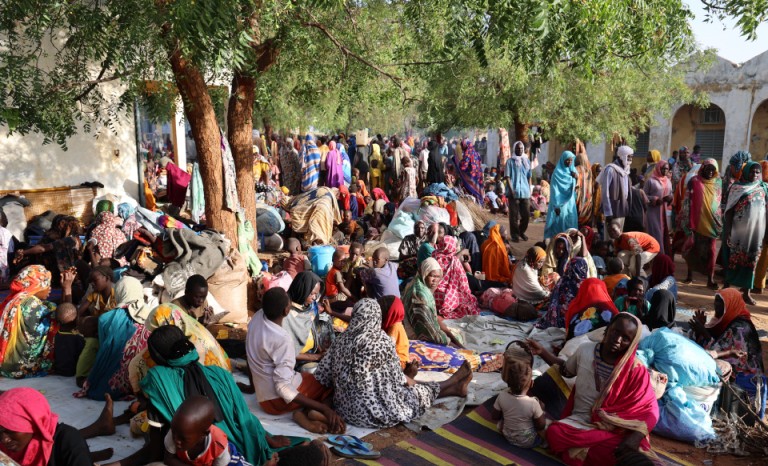Chad: UN mission urges accountability for rights violations
July 23, 2024 (GENEVA) – The United Nations Independent International Fact-Finding Mission for the Sudan said it recently documented disturbing patterns of grave human rights violations in Chad, calling on the international community to urgently step up efforts to end the country’s ongoing conflict.
A statement said the mission, which visited Chad from 30 June to 18 July, met with victims and survivors of the conflict in Sudan as well as members of Sudanese civil society, the diplomatic community and the UN country team.
The mission travelled to eastern Chad, including to Adre, Farchana and Abeche.
The Fact-Finding mission stressed the need for support while acknowledging the efforts made by Chadian authorities, UN entities and other humanitarian actors.
“This crisis requires the support of the international community as a whole,” said Mohamed Chande Othman, Chair of the Fact-Finding Mission, adding “UN entities and humanitarian groups are in dire need of greater financial and other assistance to ensure Sudanese refugees and Chadian returnees have access to basic facilities, including nutrition, hygienic needs, health care, and education.”
The Fact-Finding Mission, in a statement Sudan Tribune obtained, also called on the international community to boost humanitarian support to the Chadian communities hosting refugees, citing the immense pressure they are under.
Adre, a Chadian border town currently hosts over 200,000 Sudanese refugees.
Also contained in the report are accounts of horrific acts of killings, sexual violence including gang-rape, arbitrary detention, torture, enforced disappearances, looting, the burning of houses, and the use of child soldiers.
According to the mission, many of the violations appear to be particularly targeted against professionals such as lawyers, human rights defenders, teachers, and doctors.
In addition, however, forced displacement was seen as a common feature.
“I admire the courage of the many widows we have encountered in the camps,” Joy Ngozi Ezeilo, a member of the UN team said, adding “No one deserves to go through such cruel life-changing experiences. In addition to losing their husbands and partners, these women are assuming alone the responsibility of feeding, educating, and caring for their multiple children, while losing their homes and means of livelihood. They need support at all levels.”
There were numerous calls for accountability over various atrocities committed.
“It was disheartening to hear the testimonies of the victims of sexual violence,” explained Expert Member, Mona Rishmawi, adding that “This violence appears to take place during captivity and while the women and girls are fleeing. Sometimes it is to punish a woman who is actively standing up for her community. Sometimes it is random and opportunistic. These brutal acts must stop and the perpetrators must be brought to justice. The victims also need strong physical and psychological support, which is unavailable to them now.”
Fighting between the Sudanese Armed Forces (SAF) and the Rapid Support Forces (RSF) has killed thousands of people since it began in mid-April last year.
According to the UN, more than 26 million people urgently need aid and are food insecure while more than 10 million civilians have been displaced internally.
(ST)

